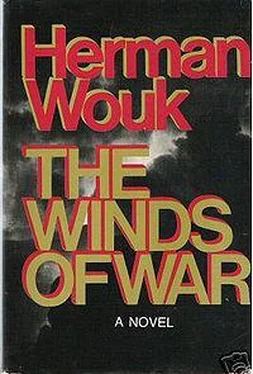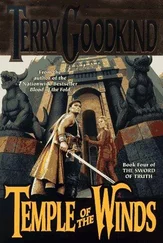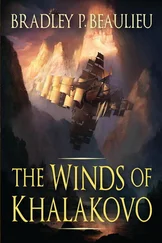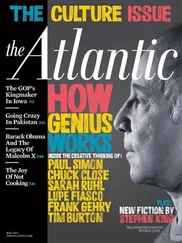Herman Wouk - The Winds of War
Здесь есть возможность читать онлайн «Herman Wouk - The Winds of War» весь текст электронной книги совершенно бесплатно (целиком полную версию без сокращений). В некоторых случаях можно слушать аудио, скачать через торрент в формате fb2 и присутствует краткое содержание. Год выпуска: 1971, Издательство: Collins, Жанр: Историческая проза, на английском языке. Описание произведения, (предисловие) а так же отзывы посетителей доступны на портале библиотеки ЛибКат.
- Название:The Winds of War
- Автор:
- Издательство:Collins
- Жанр:
- Год:1971
- ISBN:нет данных
- Рейтинг книги:4 / 5. Голосов: 1
-
Избранное:Добавить в избранное
- Отзывы:
-
Ваша оценка:
- 80
- 1
- 2
- 3
- 4
- 5
The Winds of War: краткое содержание, описание и аннотация
Предлагаем к чтению аннотацию, описание, краткое содержание или предисловие (зависит от того, что написал сам автор книги «The Winds of War»). Если вы не нашли необходимую информацию о книге — напишите в комментариях, мы постараемся отыскать её.
About the Author
Herman Wouk's acclaimed novels include the Pulitzer-Prize winning
;
;
;
;
;
; and
.
The Winds of War — читать онлайн бесплатно полную книгу (весь текст) целиком
Ниже представлен текст книги, разбитый по страницам. Система сохранения места последней прочитанной страницы, позволяет с удобством читать онлайн бесплатно книгу «The Winds of War», без необходимости каждый раз заново искать на чём Вы остановились. Поставьте закладку, и сможете в любой момент перейти на страницу, на которой закончили чтение.
Интервал:
Закладка:
“You exaggerated it.”
“I did not. You showed striking presence of mind. I was impressed, and so was Aaron when he found out. The horse might have killed him. If I can tell him you’re coming, I bet he’ll stop grumbling.”
“Your friend Slote might take a dim view of my showing up with you.”
Natalie said with a grim little smile, “I’ll handle Leslie Slote. All right?”
“I’ll think about it,” Byron said.
“If you need money, I’ll be glad to lend you some.”
“Oh, I’ve got money. As a matter of fact, Natalie, there’s not all that much to think about. I guess I’ll come along. With Jastrow off in Greece, this will be a dismal place.”
“Bless your heart.” She gave him a delighted smile. “We’ll have fun. I’ll see to that.”
“What happens after Warsaw?” Byron said. “Will you come back here?”
“I guess so, if the consul doesn’t persuade Aaron to go home meantime. He’s really working on him. And you, Briny?”
“Well, maybe I will too,” Byron said. “I’m at loose ends.”
That night at dinner, when he heard the news, Dr. Jastrow ordered up a bottle of champagne. “Byron, I can’t tell you what a load you’ve taken off my mind! This headstrong girl doesn’t know how wild and backward Poland is. I do. From what my relatives write me, it hasn’t improved one iota since I left there forty-five years ago. And the situation really is unstable. The villain with the moustache is making nasty noises, and we must look for the worst. However, there’s bound to be some warning. My mind is much more at ease now. You’re a capable young man.”
“You talk as though I were some kind of idiot,” Natalie said, sipping champagne.
“You are a girl. It’s something you have trouble remembering. You were that way as a child, climbing trees and fighting boys. Well, I’ll be here alone, then. But I won’t mind that.”
“Won’t you be in Greece, sir?” Byron said.
“I’m not so sure.” Jastrow smiled at their puzzled looks. “It’s some clumsiness about my passport. I let it lapse, and not being native-born, but naturalized through my father’s naturalization, it turns out there’s a bit of red tape involved in renewing it. Especially since I haven’t been back in nine years. The problem may or may not be unraveled by the end of August. If it isn’t I’ll just take the trip next spring.”
“That’s something you should certainly straighten out,” Byron said.
“Oh, of course. These things used to be simple, the consul says. But since the flood of refugees from Hitler began, the rules have tightened up. Well, Briny, so you and Natalie will be off to Warsaw in a few weeks! I couldn’t be more pleased, and I’m sure she can use a chaperone.”
“Go climb a tree, Aaron,” Natalie said, turning pink, and her uncle laughed at her, his first wholehearted laugh in a week.
“I hope you’ll manage to meet my cousin Berel,” Jastrow said to Byron. “I haven’t seen him since I left Poland, but we’ve usually exchanged three or four letters a year. Presence of mind has always been his strong point, too.
Chapter 6
Pamela drove Commander Henry and her father to Swinemünde. The train would have been faster, but Henry wanted to see the countryside and the small towns, and the Englishman was more than agreeable. One could almost get to like Germans, he said, if one stayed out of the cities.
Pug was appalled at the girl’s driving. She chauffeured the rented Mercedes around Berlin in docile conformity to the lights and the speed laws, but once on the autobahn she rocketed the needle to one hundred fifty kilometers an hour. Tudsbury chatted over the wind roar, paying little attention to the scenery blurring past.
He now thought there might be no war. The British were dealing seriously at last with the Russians about a military alliance. They were starting to turn out airplanes so much faster that regaining air parity, which they had lost in 1936, was in sight. Their pledge to Poland showed Hitler that this time Chamberlain meant business. The Nazi Party in Danzig had quieted down. Mussolini had flatly told Hitler (so Tudsbury’s inside information had it) that he was not ready to fight. The correspondent foresaw a respite of two or three years, during which the alarmed democracies would rearm faster than the Germans possibly could. The cornered dictator would eventually either fail, or start a war and be crushed, or very likely get assassinated.
“I can’t understand why somebody hasn’t shot him long ago, the way he shows himself. He bears a charm,” Tudsbury shouted, as the car careered out on the two-lane road to pass a long line of thundering trucks full of new gray-painted army tanks. Pug Henry clutched at an armrest, for another truck was approaching head on, swelling like a balloon; it went by in a howl and a screech half a second after Pamela whisked into her own lane between two trucks, brushing hair off her forehead with one relaxed little hand. “But the charm is based on success. It may lapse once he stops moving ahead. He’s murdered a lot of people on the way up. They all have relatives.”
Commander Grobke came to meet them at the base gate in a small car, which Tudsbury could barely squeeze into. Pamela roared off to a hotel, and Grobke took the two men for a long tour, by car and on foot, through the Swinemünde yard. It was a gray afternoon, with low black clouds threatening rain. The dank east wind off the Baltic felt pleasantly cool after the sultriness of Berlin. The flat, sandy, bleak seacoast base was much like New London, Victor Henry thought. If one ignored flags and signs, in fact, the naval facilities of big powers were hard to tell apart. They were all in the same business, imitating the British navy, which had first brought the industrial age to war at sea. The low black U-boats tied in clusters to the long piers or resting on blocks in dry docks; the smell of tar, hot metal, and seawater: the slow clank and screech of overhead cranes; the blaze of welding torches, the rattle of riveters; the flat or curved sections of steel, painted with yellow or red primer, swinging through the air: the gigantic open sheds; the mounds of piping, cables, timbers, and oil drums; the swarms of grease-blackened cheerful men in dirty coveralls, goggles, and hard hats; the half-finished hulls propped with timbers on rails slanting into dirty water — he might have been in Japan, France, Italy, or the United States. The differences that counted, the crucial numbers and performance characteristics, were not discernible.
He could see that the Germans were not changing the classic double hull of a submarine, and that, like the Americans, they were doing more welding. He would have liked to apply his pocket tape measure to a steel pressure hull section. The plate seemed thinner than in American submarines. If this were so, U-boats could probably not dive quite as deep, unless the Germans had developed a remarkably strong new alloy. But on such a visit one used one’s eye, not a camera or a tape measure.
A low sun broke out under the gray clouds, and the car cast an elongated shadow when Grobke stopped near the entrance gate at a dry dock where a U-boat rested on blocks. From one side of the dock a gangway with rails, and from the other a precarious long plank, slanted down to the submarine’s deck.
“Well, that’s the tour,” said Grobke. “This is my flagship. Since I cannot have you aboard, Tudsbury, much as I would like to, I suppose we all part company here.”
Henry picked up his cue from the German’s smile. “Look, let’s not stand on ceremony. If I can come aboard, I’ll come and Tudsbury won’t.”
“Good God, yes” said the Englishman. “I’ve no business here anyway.”
Читать дальшеИнтервал:
Закладка:
Похожие книги на «The Winds of War»
Представляем Вашему вниманию похожие книги на «The Winds of War» списком для выбора. Мы отобрали схожую по названию и смыслу литературу в надежде предоставить читателям больше вариантов отыскать новые, интересные, ещё непрочитанные произведения.
Обсуждение, отзывы о книге «The Winds of War» и просто собственные мнения читателей. Оставьте ваши комментарии, напишите, что Вы думаете о произведении, его смысле или главных героях. Укажите что конкретно понравилось, а что нет, и почему Вы так считаете.












